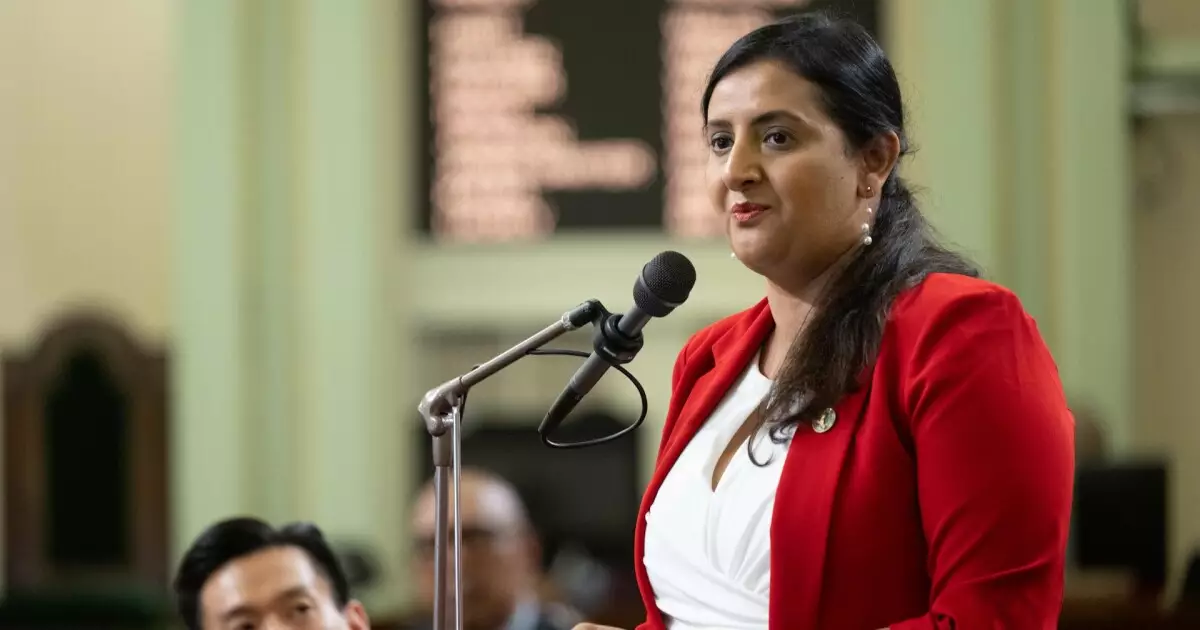California, often heralded as the land of opportunity, now finds itself tangled in a fiscal web as Governor Gavin Newsom signed a supplemental budget bill worth a staggering $2.8 billion. This immense funding, primarily aimed at Medi-Cal expenses, signals an unsettling shift in the state’s financial management. While proponents argue for expanded healthcare access, the elephant in the room remains: how will this affect taxpayers who already feel the pinch of California’s oppressive living costs?
Medi-Cal, California’s Medicaid program, has grown to encompass a diverse demographic, including undocumented immigrants. While the argument for healthcare as a fundamental right resonates emotionally, one must question the sustainability of a program that seems to balloon without sufficient scrutiny. The claims that Medi-Cal is about to face a deficit of $2.8 billion beg the question: how could state budgeting have turned so precarious? The original budget proposed by Newsom projected costs at $6.5 billion. Now, he finds himself face-to-face with a $9.5 billion bill in less than a year. Though transparency is a glimmering demand from the public, such projections strain credibility.
Partisan Tensions Amidst Debate
The debate that erupted during the passing of Assembly Bill 100 illustrates a broader ideological divide between Republicans and Democrats. Republicans, such as Assemblymember Carl DeMaio, have fiercely criticized the Medi-Cal expansion as a misguided allocation of taxpayer dollars, dubbing it a “gift of public funds” to illegal immigrants. Their concerns stem from a legitimate distrust regarding accountability and the management of the state’s resources. The ballooning cost of Medi-Cal is alarming—the fact that spending has nearly doubled to $42.1 billion in six years raises substantial questions about the efficiency and direction of this healthcare system.
In stark contrast, Democrats advocate for a more altruistic view, emphasizing the crucial nature of healthcare access, regardless of immigration status. Assemblymember Jasmeet Bains, herself a physician, argues that failing to provide healthcare leads to more costly emergency treatments down the line. However, the emotional appeal of her argument does little to alleviate the very real fiscal concerns raised by critics. California’s demographics and financial landscape are complex; pushing for universal healthcare access without prudent funding strategies risks placing untenable pressure on the state’s budget.
Wildfire Funding: A Double-Edged Sword
Additionally, AB 100 includes funding allocations meant to support local governments affected by wildfires, which seem noble on the surface. Yet, one cannot ignore the sweeping fiscal implications of a budget that spans across multiple high-stake issues. The promise of $181 million designated for forest resilience is imperative in addressing the wildfire epidemic. Still, it rings hollow against the backdrop of rising costs attributed to Medi-Cal claims.
Are Californians expected to shoulder the burden of an expanding welfare state while simultaneously picking up the tab for natural disaster recovery? This juxtaposition reflects a concerning trend where the state’s budgetary ideals may cater more to the financial philosophy of collective care rather than careful economic consideration. Where do we draw the lines? As someone situated within the center-right political spectrum, the reliance on sweeping, reactionary legislative measures highlights a fundamental disconnect from the principles of personal responsibility and fiscal conservatism.
Urgency for Reform and Clarity
In the wake of these developments, the urgency for reform is paramount. The crux of the issue hinges not merely on the cost of Medi-Cal or the aid for wildfire recovery, but rather on the accountability mechanisms that should accompany such expenditures. Assembly Republicans have already raised alarm bells about a lack of clear accountability from the governor’s office, urging for audits to shed light on the ballooning costs. Without rigorous oversight, the apprehension among citizens will only intensify.
The implications of these decisions extend beyond mere budget adjustments; they speak to the efficiency and morality of governance in the state of California. As citizens offer their hard-earned money to support these expanding programs, there exists a profound expectation for responsible stewardship of financial resources. Ignoring this expectation could lead to an erosion of trust in governmental institutions, signaling a grim future for any progressive reforms aimed at addressing pressing social issues.

